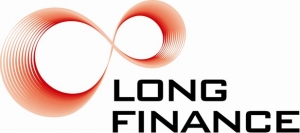ZYen:Long Finance
Contents |
Objective
Established in 2007 by Z/Yen Group in conjunction with Gresham College, the Long Finance initiative began with a conundrum – “when would we know our financial system is working?” Long Finance aims to “improve society’s understanding and use of finance over the long-term”, in contrast to the short-termism that defines today’s financial industry. The immediate objective of the initiative is to establish a Foundation that can ignite global debate on long-term finance, by examining how commerce should enable and encourage environmental and social Sustainability.
The Foundation would have four major outcomes:
- Expand frontiers - developing methodologies to solve ‘wicked’ financial problems by, for example, developing workshop tools, case studies, software, and training;
- Change systems – providing evidence-based examples through research of how financing methods work, and don’t work; ranging from financial risk and problem-analysis to structural governmental and investment implications;
- Deliver services – conferences and training using collaborative tools and theory;
- Build communities – forming new collaborative groups and spin-offs through meeting, networking, events, and the use of social networking tools; engaging with communities by posing questions of broad interest, e.g., “how might a 20-year-old responsibly enter into a financial structure for his or her retirement?” or “when could investors safely fund a 75 to 100 year forestry project?”
Activities
The iconic project for Long Finance is the Eternal Coin, a global educational experience about the meaning of money as a medium of exchange and a resilient store of value. The fundamental project for Long Finance is to develop a meta-commerce guide, a road map of the key questions that need resolution over the next 100 years. While we will restructure research priorities as we progress, Long Finance intends to conduct detailed research in eight thematic areas - long-term vs. short-term, fiscal vs. monetary, free vs. regulated, selfish vs. selfless, mutual vs. public-sector versus private-sector, rational vs. behavioural, sustainability vs. robustness vs. resilience, and theory vs. practice.
Another theme - short-term implications of long term issues - is being carried forward by the Long Finance Forum of Futurists (L3F), to which Dr Oliver Sparrow has contributed the paper Long Range Finance.
So far we have given presentations around Europe and North America and published a book, The Road To Long Finance. We had a successful launch at Gresham College in July 2009 to get the debate going which was attended by 120 financial people. We’ve assembled a “kitchen cabinet” of leading bankers, investors, risk managers, journalists, sharia financiers, students, regulators and politicians. We boast an official historian and a writer-in-residence. We have begun planning and budgeting core activities, as well as starting to assemble over 70 proposed research papers within the eight themes. These proposed research projects range from studying institutions that have demonstrated great longevity, e.g. the Vatican, to what we can learn from economics in harsh climates, to the value of high frequency trading. We aim to target the problems of finance by combining the styles of Long Now, Santa Fe Institute, and London Accord.
Next Steps
The near-term objective is to get pilot funding. The scale of funding could range from £/$/€9M to £/$/€15M over three years. Discussions have begun with financial firms, professional firms, information services firms, financial centres, foundations and governments, leading to some formal proposals now being considered. More discussions are welcome!
See also
George Bull, "Breaking Up The Banks", Securities & Investment Review, Chartered Institute for Securities & Investment, pages 12-14 (January 2010).
Michael Mainelli, "The Eternal Coin – Made From Real Money: Risks In Fiat Currencies", Journal of Risk Finance, Volume 11, Number 1, pages 111-116, Emerald Group Publishing (January 2010).
Mick James, "Dealing With Short-Term Consequences Of Short-Term Thinking", Consultant-News.com (25 November 2009).
Insurance Institute of Ireland, Industry Leaders Summit - "Long Finance: When Would We Know Our Financial System Is Working?" Dublin, Ireland (8 October 2009).
Key recommendation - Michael Mainelli, "Rewiring Business", Financial World, page 38, IFS School of Finance (July/August 2009).
Gresham College - "Metamorphoses The Terrible Beauty of Change" - London, England (22 June 2009).
Michael Mainelli, "From The Religion Of Regulation To Long Finance", Reforming The City: Responses To The Global Financial Crisis, Chapter 11, Sam Whimster (ed), pages 159-167, Forumpress (2009).
Original article - Michael Mainelli, "Long Finance", Journal of Risk Finance, Volume 10, Number 2, pages 193-195, Emerald Group Publishing Limited (April 2009).
Michael Mainelli, "The Wicked Problem Of Good Financial Markets", Journal of Risk Finance, Volume 9, Number 502-508, Emerald Group Publishing Limited (December 2008).
